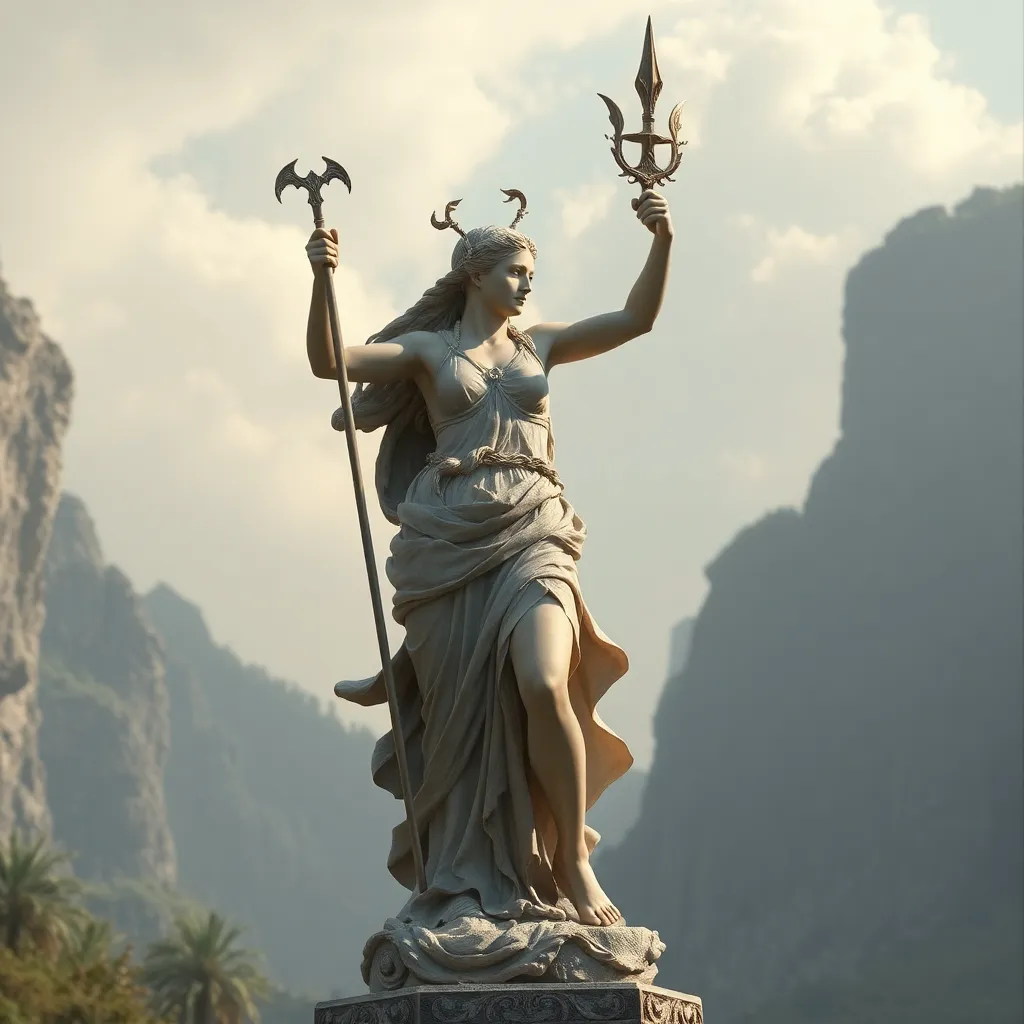The Influence of Artemis on Modern Feminism and Gender Studies
I. Introduction
Artemis, the ancient Greek goddess of the hunt, wilderness, and childbirth, has long been a significant figure in mythology. She represents not only the fierce independence and strength of women but also embodies the complexities of femininity. As society continues to grapple with issues of gender equality and the roles of women, studying the influence of Artemis on contemporary thought becomes essential.
This article aims to explore the impact of Artemis on modern feminism and gender studies, examining how her mythological legacy has been utilized to challenge traditional gender norms and empower women today.
II. The Myth of Artemis: A Brief Overview
Artemis, daughter of Zeus and Leto, and twin sister of Apollo, is one of the most revered deities in Greek mythology. She is often depicted as a young woman carrying a bow and arrows, symbolizing her role as a huntress and protector of nature.
Key attributes and symbols associated with Artemis include:
- Independence: Artemis is known for her refusal to marry, emphasizing her autonomy.
- Strength: As a skilled hunter, she represents physical prowess and resilience.
- Protectiveness: She is often seen as a guardian of women and children, particularly during childbirth.
- Connection to nature: Artemis is deeply associated with wildlife and the natural world.
Through these attributes, Artemis emerges as a representation of independence and strength, making her an enduring symbol in discussions of femininity.
III. Archetypes of Women: Artemis in Feminist Theory
Archetypes play a crucial role in defining female identity within feminist theory. The figure of Artemis can be compared to other female archetypes, such as Eve from Judeo-Christian traditions and Athena, the goddess of wisdom and warfare.
Unlike Eve, who is often portrayed as a symbol of temptation and passivity, Artemis embodies a more active and assertive form of femininity. Similarly, while Athena represents intellect and strategy, Artemis combines nurturing qualities with the strength of a hunter.
Artemis embodies the duality of femininity: she is both a nurturer and a hunter, showcasing the multifaceted nature of womanhood.
IV. Artemis and the Reclamation of Female Power
The feminist movement has increasingly embraced powerful female figures from mythology to inspire contemporary discourse. Artemis serves as a potent symbol of empowerment in feminist literature and art.
Examples of her influence can be seen in:
- Literature: Modern feminist authors often reference Artemis to evoke themes of independence and strength.
- Art: Artists have depicted Artemis to challenge traditional representations of women.
- Activism: The imagery of Artemis is used in feminist campaigns advocating for women’s rights and autonomy.
These case studies highlight how contemporary feminist works draw on Artemis to reclaim female power and challenge societal norms.
V. Gender Studies: Artemis as a Lens for Analyzing Gender Roles
Mythology plays a significant role in understanding gender constructs, and Artemis provides a valuable lens through which to analyze these issues. Her character challenges binary notions of gender, offering insights into fluidity and nonconformity.
In gender studies, discussions surrounding Artemis often focus on:
- The role of myth in shaping gender expectations and roles.
- Artemis’s influence on the discourse surrounding gender fluidity, as her character defies traditional feminine stereotypes.
- The incorporation of Artemis into academic curricula, allowing students to explore her significance in gender discourse.
By integrating Artemis into gender studies, scholars can more deeply analyze the complexities of gender identity and expression.
VI. Contemporary Cultural Representations of Artemis
Modern media representations of Artemis continue to shape perceptions of female strength and independence. From literature to film, her character has evolved while retaining core attributes that resonate with contemporary audiences.
Some notable examples of Artemis-inspired characters include:
- Characters in fantasy literature, such as strong female warriors who embody the spirit of Artemis.
- Films that portray independent female protagonists drawing inspiration from the goddess’s attributes.
- Art installations that invoke Artemis to comment on issues of gender and power.
These representations in pop culture not only reflect Artemis’s enduring influence but also contribute to the ongoing dialogue about female empowerment.
VII. Critiques and Challenges
While Artemis serves as an empowering figure, it is important to examine potential oversimplifications in her interpretation. Critics argue that relying solely on mythological figures can lead to essentialist views of femininity.
Furthermore, discussions of intersectionality highlight the need for inclusive feminist narratives that consider diverse experiences. Challenges in applying mythological figures like Artemis to contemporary issues include:
- The risk of homogenizing women’s experiences by focusing on a single archetype.
- The challenge of addressing the complexities of race, class, and sexuality within feminist discourse.
- The potential for mythological figures to be co-opted in ways that dilute their original meanings.
These critiques underscore the importance of a nuanced approach to mythology in feminist studies.
VIII. Conclusion
Artemis’s enduring influence on feminism and gender studies highlights the power of myth in shaping societal views of gender. Her representation as a strong, independent woman offers a framework for understanding and challenging traditional gender roles.
As we continue to explore and integrate mythological figures like Artemis into feminist discourse, we must reflect on their relevance in contemporary society and the ways they can inspire new narratives of empowerment and identity.




